
Janjanbureh: A Historical Gem on the Gambia River
Nestled on MacCarthy Island in the Gambia River, Janjanbureh is a town rich in history and culture. Established in the 1830s, it was once a key location in the transatlantic slave trade. Today, it offers a peaceful retreat with a deep sense of history and an opportunity to explore the roots of West African heritage. Janjanbureh is home to an array of colonial-era buildings that stand as silent witnesses to its storied past. The island’s serene environment and warm, friendly locals make it a perfect getaway for those looking to experience authentic Gambian life. Stroll through the town’s quiet streets, visit the local market, and engage with the vibrant community. Nature lovers will be enthralled by the island’s rich biodiversity. The Gambia River provides a habitat for various bird species, making it a paradise for bird watchers. A boat trip along the river can offer sightings of hippos and crocodiles, adding an adventurous twist to your visit. Don’t miss the chance to explore the nearby River Gambia National Park, home to the endangered West African chimpanzee.
Local tips in Janjanbureh
- Visit the slave house museum to understand the town's historical significance.
- Engage with local guides for a more in-depth experience of Janjanbureh's history and culture.
- Carry insect repellent, especially if you plan to explore the natural surroundings.
- Try the local cuisine at the island's small eateries for an authentic taste of Gambian flavors.
- Plan a boat trip on the Gambia River for a chance to see hippos and crocodiles.
Janjanbureh: A Historical Gem on the Gambia River
Nestled on MacCarthy Island in the Gambia River, Janjanbureh is a town rich in history and culture. Established in the 1830s, it was once a key location in the transatlantic slave trade. Today, it offers a peaceful retreat with a deep sense of history and an opportunity to explore the roots of West African heritage. Janjanbureh is home to an array of colonial-era buildings that stand as silent witnesses to its storied past. The island’s serene environment and warm, friendly locals make it a perfect getaway for those looking to experience authentic Gambian life. Stroll through the town’s quiet streets, visit the local market, and engage with the vibrant community. Nature lovers will be enthralled by the island’s rich biodiversity. The Gambia River provides a habitat for various bird species, making it a paradise for bird watchers. A boat trip along the river can offer sightings of hippos and crocodiles, adding an adventurous twist to your visit. Don’t miss the chance to explore the nearby River Gambia National Park, home to the endangered West African chimpanzee.
When is the best time to go to Janjanbureh?
Iconic landmarks you can’t miss
Jang Jang Burreh Camp
Experience the serene beauty and rich culture of The Gambia at Jang Jang Burreh Camp, your gateway to adventure and relaxation.
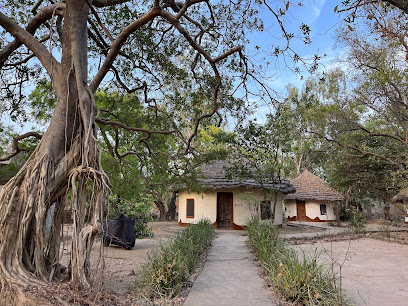
Slave House
Explore the Slave House in Janjanbureh, a profound historical landmark reflecting the impacts of the slave trade and honoring the resilience of the human spirit.
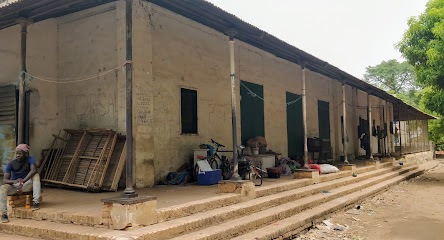
Baobolong Camp and Guest House
Discover the serene beauty and local culture at Baobolong Camp and Guest House in Janjanbureh, The Gambia, your tranquil retreat amidst nature.
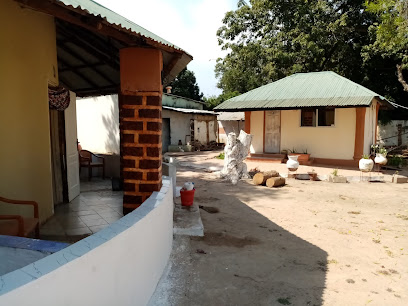
Cultural Museum
Explore the Cultural Museum in Janjanbureh, a treasure trove of local history, art, and traditions that brings the vibrant culture of The Gambia to life.
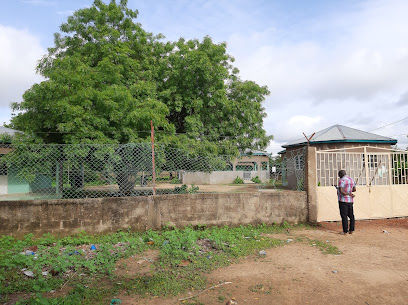
Kankurang Centre
Experience the rich cultural heritage of The Gambia at Kankurang Centre, a museum dedicated to preserving local traditions and history.
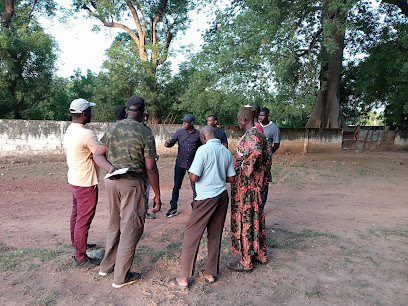
Freedom Tree Monument
Explore the Freedom Tree Monument in Janjanbureh, a poignant symbol of resilience and a testament to Gambia's rich cultural heritage.
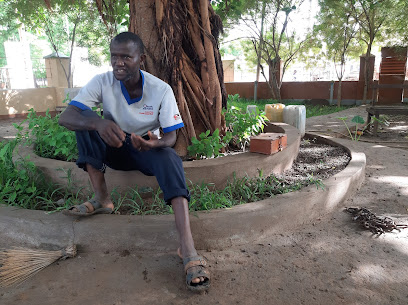
Janjanbureh Area Council
Experience the rich culture and serene beauty of Janjanbureh Area Council in The Gambia, a hidden gem for adventurous travelers.
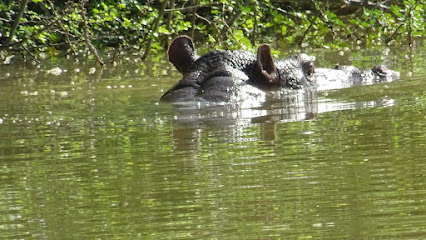
Unmissable attractions to see
Kankurang Centre
Explore the rich cultural heritage of The Gambia at the Kankurang Centre, a must-visit museum in Janjanbureh that celebrates local traditions.
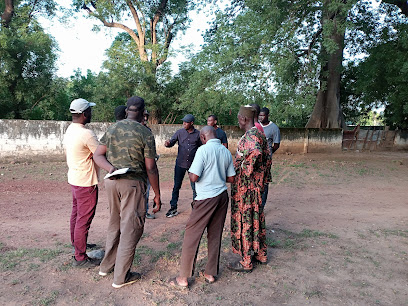
Bantamba camping site
Discover the serene beauty of Bantamba Camping Site in Janjanbureh, Gambia – a perfect escape for nature lovers and adventure seekers.
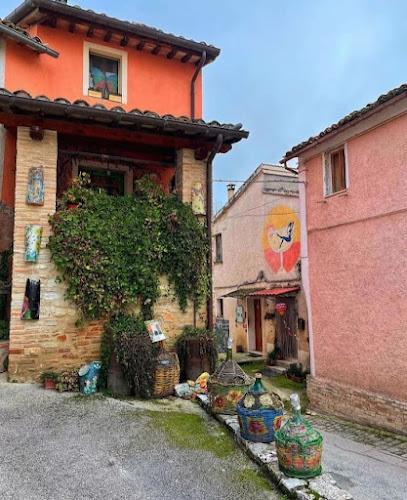
Kunkilling Forest Park
Experience the tranquility of Kunkilling Forest Park in Janjanbureh, a haven for nature lovers and adventure seekers in Gambia.

Fort James Island
Explore the historical beauty of Fort James Island, a serene getaway with rich colonial heritage and stunning coastal views.

Muritabeh Women's Garden
Explore the serene beauty and cultural significance of Muritabeh Women's Garden in Fula Bantang, a unique destination for nature lovers and cultural enthusiasts.

Kiberi Forest Park
Explore Kiberi Forest Park, a serene state park in Fitu Fula, offering lush landscapes and wildlife experiences for nature lovers.

Bankuba Forest Park
Explore the natural wonders of Bankuba Forest Park, a tranquil state park in N'Jareng Kunda, perfect for hiking, birdwatching, and family picnics.

Drammeh kunda
Immerse yourself in the lush greenery and tranquility of Drammeh Kunda Park, a serene escape in Dampha Kunda, Gambia, perfect for relaxation and nature lovers.

Nianijai swampy area, a potential for rice cultivation
Explore the serene Nianijai Swampy Area, where agriculture meets nature in a beautiful landscape perfect for eco-tourism and cultural experiences.

Nema kounkou
Experience the enchanting beauty and vibrant culture at Nema Kounkou, a hidden gem in Bureng, Gambia, perfect for adventurous travelers.

Madina Demba Forest Park
Discover the natural beauty and tranquility of Madina Demba Forest Park in Galleh, a national park perfect for relaxation, hiking, and wildlife observation.

Essential places to dine
Bendula Bar
Discover authentic Gambian cuisine at Bendula Bar in Janjanbureh, where fresh ingredients meet warm hospitality.
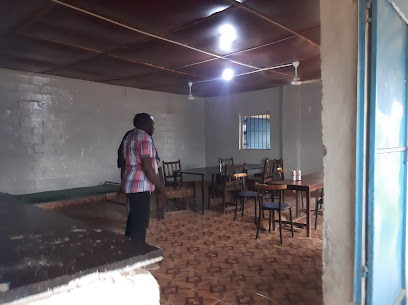
Chicken rek
Discover delicious local cuisine at Chicken Rek in Bureng, where traditional flavors meet vibrant ambiance for an unforgettable dining experience.
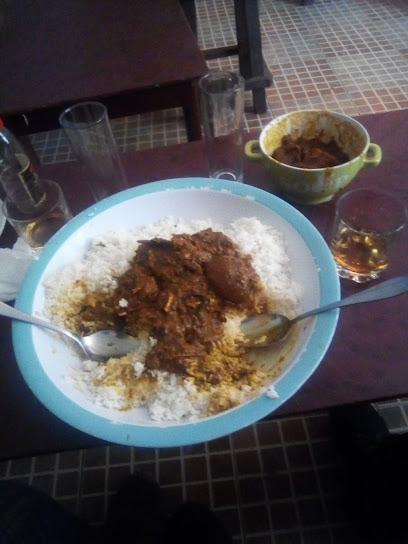
HAPPY CORNER LODGE BAR AND RESTURANT
Experience authentic Gambian flavors at Happy Corner Lodge Bar and Restaurant in Janjanbureh - a must-visit culinary destination for every traveler.
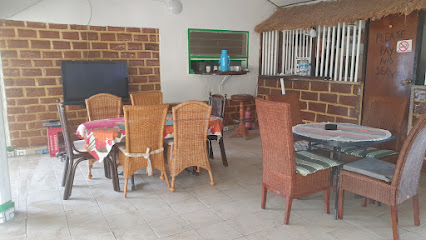
Cheers Bar & Restaurant and Musa River Side Garden
Discover authentic Gambian flavors and breathtaking river views at Cheers Bar & Restaurant in Janjanbureh.
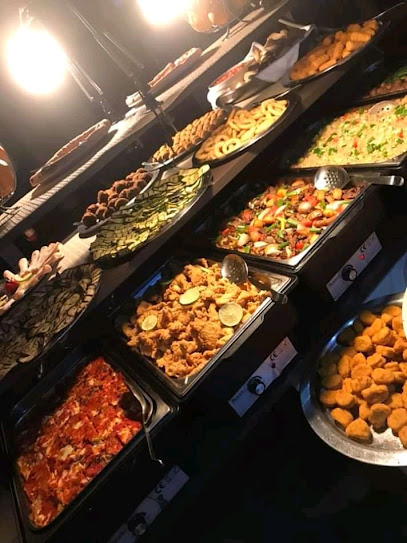
BLACK POT
Experience authentic Gambian cuisine at Black Pot in Bansang, where every dish tells a story of culture and tradition.
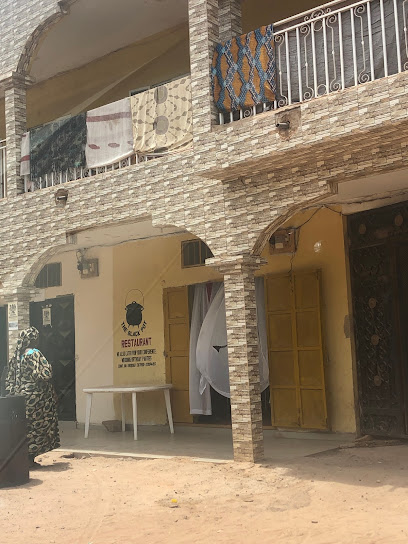
Sunrise and Sunset Restaurant
Experience authentic Gambian cuisine with stunning views at Sunrise and Sunset Restaurant in Janjanbureh.

Riverside juice bar and restaurant
Discover fresh flavors at Riverside Juice Bar and Restaurant in Janjanbureh – where local cuisine meets serene riverside relaxation.

Nyancho Bar & Restaurant janjangbureh
Discover family-friendly dining at Nyancho Bar & Restaurant in Janjanbureh – savor authentic Gambian flavors in a warm and welcoming atmosphere.
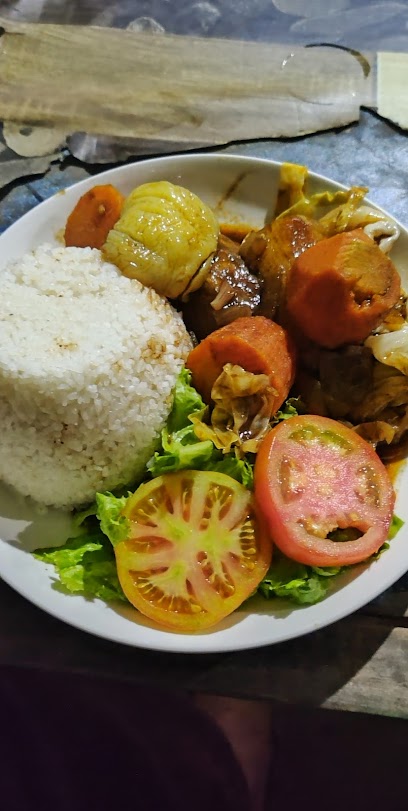
Bentengba Restaurant
Experience authentic Gambian cuisine at Bentengba Restaurant in Janjanbureh—where every dish tells a story.
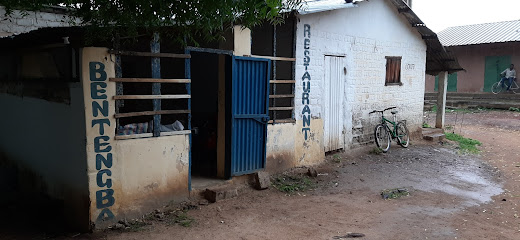
Assikoye Restaurant
Discover authentic Gambian cuisine at Assikoye Restaurant in Janjanbureh – a family-friendly dining destination offering delicious local flavors.

Markets, malls and hidden boutiques
Jang Jang Burreh Camp
Discover the tranquil beauty of Jang Jang Burreh Camp, a perfect blend of nature, culture, and comfort in Janjanbureh.
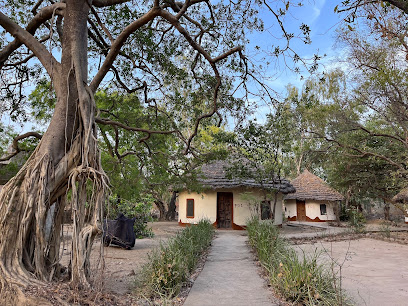
TOP-SHOP
Discover a vibrant souvenir store in Gambia, featuring unique handicrafts, local art, and a warm shopping experience near Senegambia Beach.
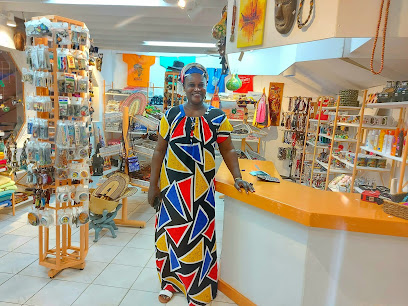
Halabaid Trading Enterprises paradise supermarket
Experience the vibrant local culture at Halabaid Trading Enterprises, a premier supermarket in Farafenni filled with fresh produce and unique Gambian products.
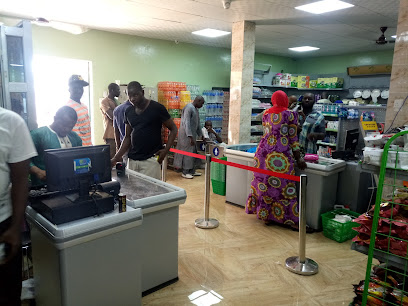
Baobolong Camp and Guest House
Experience the serene beauty of Janjanbureh at Baobolong Camp and Guest House, where nature, culture, and comfort come together.
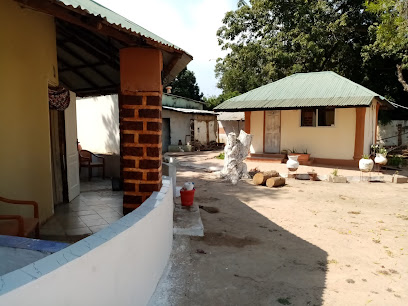
Bansang Market
Discover the vibrant atmosphere of Bansang Market, a shopping haven for fresh produce, unique crafts, and authentic Gambian street food.
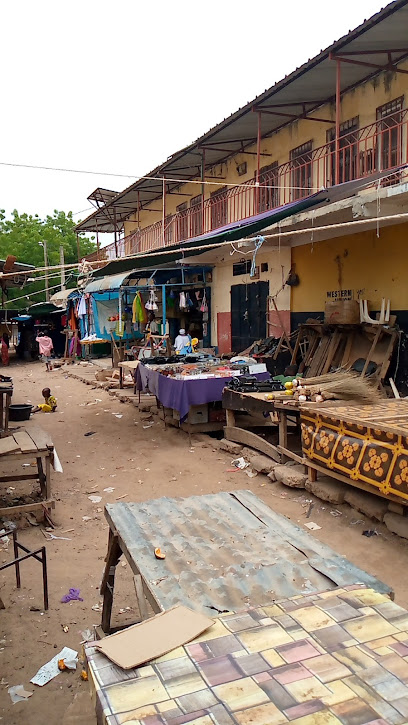
Sare Kokeh
Explore the unique offerings of Sare Kokeh, a charming home goods store in Domel Jawo, showcasing authentic Gambian craftsmanship and culture.

Emporium Banjul
Explore a treasure trove of vibrant fabrics and unique textiles at Emporium Banjul, a cultural gem in The Gambia's capital.
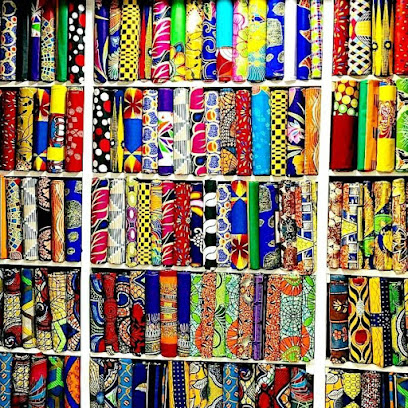
Costa road
Explore the vibrant flavors and local culture at Costa Road Grocery Store in Bureng, Gambia, a must-visit for every traveler.
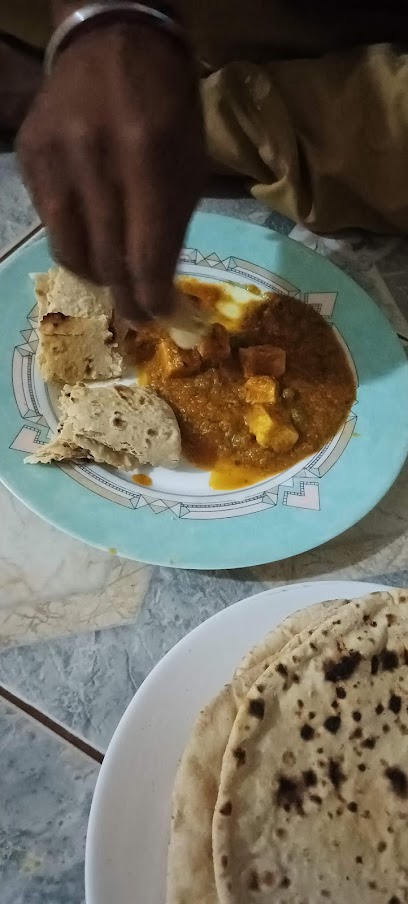
Soma Saremawdou Market
Experience the vibrant culture of Soma at the Soma Saremawdou Market, a bustling hub of local produce, handicrafts, and authentic Gambian flavors.
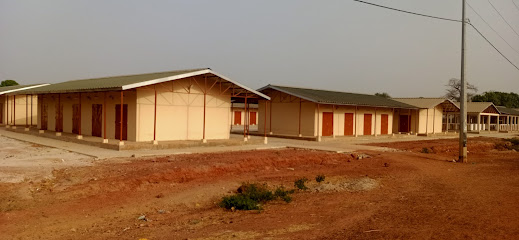
Al Islam shopping father &son
Explore Al Islam Shopping Father & Son for authentic Gambian goods and unique souvenirs, capturing the essence of Gambia in every purchase.
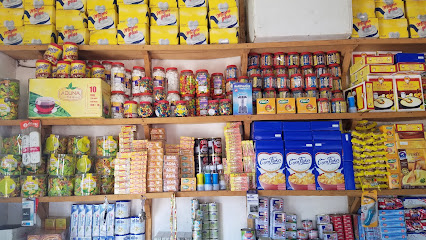
Talamanca Lodge
Discover tranquility and local charm at Talamanca Lodge, a serene retreat in the heart of Janjanbureh, Gambia, surrounded by stunning landscapes.
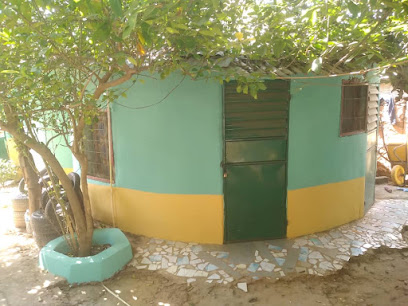
Soma Gassama Shop
Explore the vibrant flavors of Gambia at Soma Gassama Shop, your local grocery destination in Soma.

Supermarket Muslim
Explore Supermarket Muslim in Farafenni for a taste of local culture, fresh produce, and unique Gambian products in a lively shopping atmosphere.
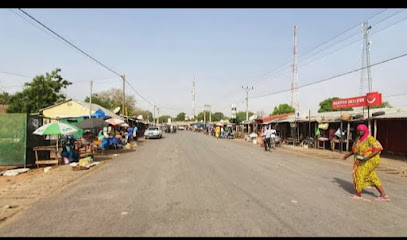
JSF- Horticulture Garden Kaiaf Ward LRR
Discover the beauty of horticulture at JSF Horticulture Garden in Kaiaf - a serene escape filled with vibrant flora and community spirit.
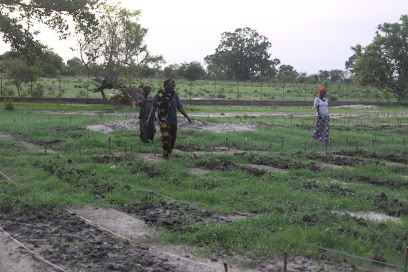
Masireh Ceesay & Brother's Business
Experience authentic Gambian culture at Masireh Ceesay & Brother's Business, a charming general store in Diabugu offering unique local products.
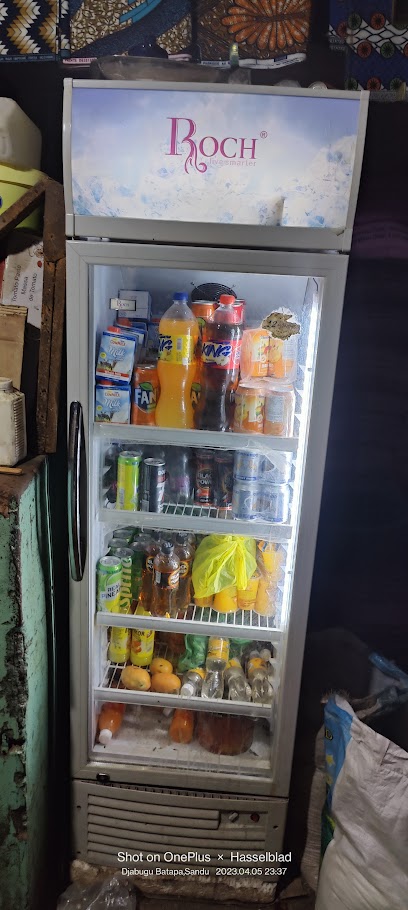
Essential bars & hidden hideouts
Jang Jang Burreh Camp
Experience the natural beauty and cultural richness of The Gambia at Jang Jang Burreh Camp, your perfect retreat for adventure and relaxation.
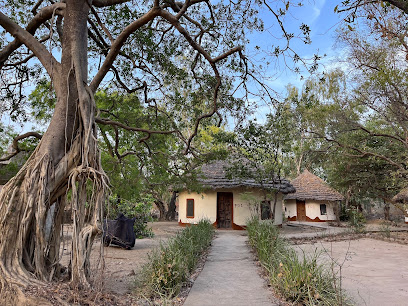
Bendula Bar
Experience the heart of Janjanbureh with exquisite local cuisine and a welcoming atmosphere at Bendula Bar, the perfect spot to relax and unwind.
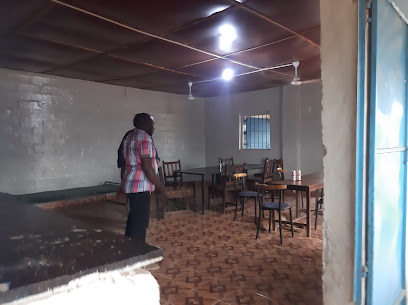
Cheers and Musa's River Side Garden..
Discover the natural beauty and authentic Gambian hospitality at Cheers and Musa's River Side Garden in Janjanbureh.
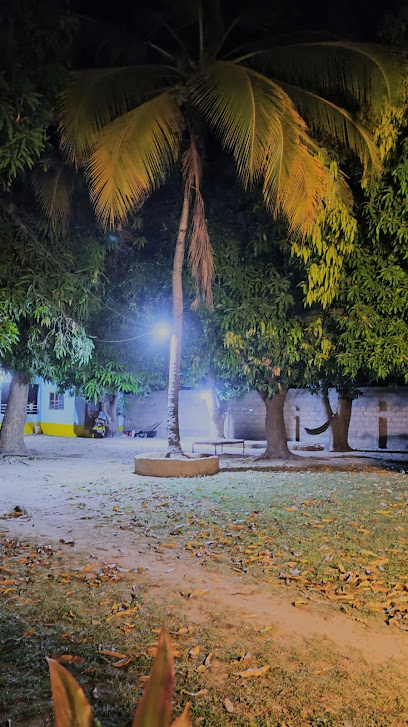
Road Side Pubcamp
Discover the lively spirit of Janjanbureh at Road Side Pubcamp, where locals and travelers gather for drinks and unforgettable moments.
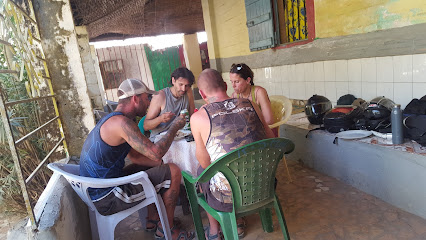
HAPPY CORNER LODGE BAR AND RESTURANT
Experience authentic Gambian cuisine at Happy Corner Lodge Bar and Restaurant in Janjanbureh, a perfect blend of local flavors and warm hospitality.
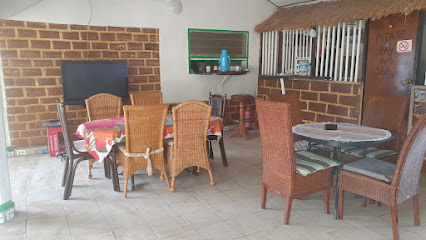
Cheers Bar & Restaurant and Musa River Side Garden
Discover the flavors of Gambia at Cheers Bar & Restaurant, where local cuisine meets stunning river views in Janjanbureh.
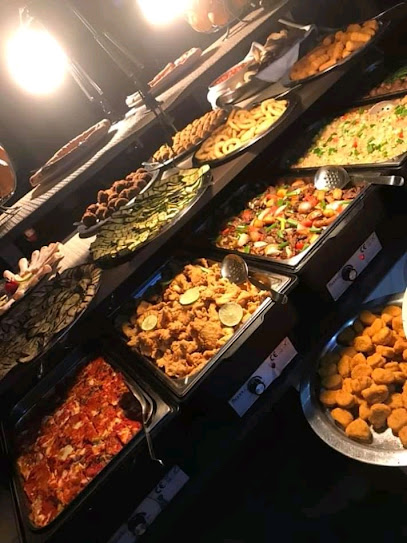
baobolong beach bar
Experience the charm and relaxation of Baobolong Beach Bar, a tranquil retreat in Janjanbureh, Gambia, perfect for unwinding and enjoying local culture.

Happy Corner Bar and Restaurant
Experience authentic Gambian cuisine at Happy Corner Bar and Restaurant in Janjanbureh, a must-visit for every traveler seeking local flavors.
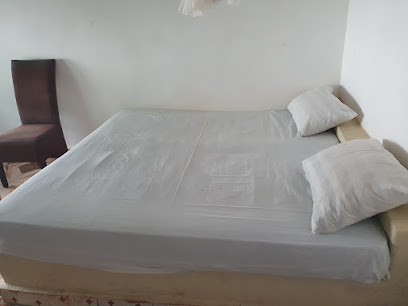
Nyancho Bar & Restaurant janjangbureh
Experience the rich flavors of Gambian cuisine at Nyancho Bar & Restaurant, a welcoming family-friendly dining spot in Janjanbureh.
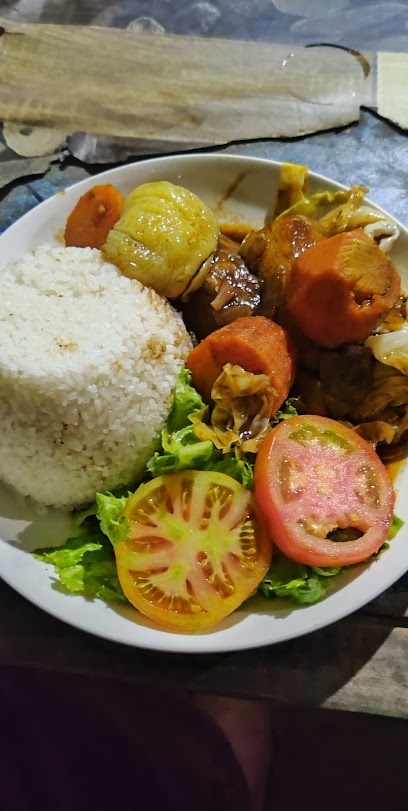
Riverside juice bar and restaurant
Discover the perfect blend of fresh juices and local cuisine at Riverside Juice Bar and Restaurant in Janjanbureh, a must-visit for every traveler.

Poco Loco Beach Bar & Restaurant
Experience the relaxed vibe of Poco Loco Beach Bar & Restaurant in Bureng, where local flavors meet stunning coastal views for an unforgettable dining experience.
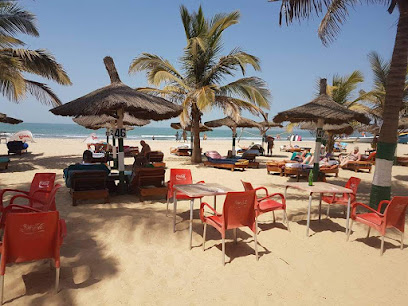
INBASIFA beach
Discover the vibrant atmosphere of INBASIFA Beach in South Gambia, where relaxation meets local culture in a stunning coastal setting.

Local Phrases
-
- HelloSalam aleikum
[sa-lam a-lay-kum] - GoodbyeTaa
[ta] - YesEey
[ee-y] - NoAla
[a-la] - Please/You're welcomeAbaraka
[a-ba-ra-ka] - Thank youJerejef
[je-re-jef] - Excuse me/SorryNjaafun
[nja-fun] - How are you?Nanga def?
[nan-ga def] - Fine. And you?Nopp. Nopp, yow?
[nop. nop, yow] - Do you speak English?Nopp, baangi Englisi?
[nop, ban-gi en-gli-si] - I don't understandMaa laa jee?
[maa laa jee]
- HelloSalam aleikum
-
- I'd like to see the menu, pleaseNopp, baangi menu xee ma?
[nop, ban-gi me-nu xee ma] - I don't eat meatMaa laa nopp jaram
[maa laa nop ja-ram] - Cheers!Baanoot!
[ba-noo-t] - I would like to pay, pleaseNopp, baangi fii ma
[nop, ban-gi fee ma]
- I'd like to see the menu, pleaseNopp, baangi menu xee ma?
-
- Help!Jibaa!
[ji-baa] - Go away!Deegal!
[dee-gal] - Call the Police!Nopp, baangi polis yi
[nop, ban-gi po-lis yi] - Call a doctor!Nopp, baangi dokteer yi
[nop, ban-gi dok-tee-er yi] - I'm lostNopp, maa baax
[nop, maa baax] - I'm illNopp, maa jamm
[nop, maa jam]
- Help!Jibaa!
-
- I'd like to buy...Nopp, baangi jum
[nop, ban-gi jum] - I'm just lookingNopp, ma xel
[nop, ma xel] - How much is it?Wala ngay jum?
[wa-la ngay jum] - That's too expensiveXalee ci la
[xa-lee ci la] - Can you lower the price?Mangi waay jum?
[man-gi waay jum]
- I'd like to buy...Nopp, baangi jum
-
- What time is it?Waar def?
[waar def] - It's one o'clockWaar mo genn
[waar mo genn] - Half past (10)Xaliss (10)
[xa-liss (10)] - MorningSubaka
[su-ba-ka] - AfternoonDinde
[din-de] - EveningLeeral
[lee-ral] - YesterdayNoppal
[nop-pal] - TodayNopp
[nop] - TomorrowNoppal na
[nop-pal na] - 1Benn
[ben] - 2Jujj
[juj] - 3Talat
[ta-lat] - 4Nyaar
[nyaar] - 5Jamm
[jam] - 6Jomon
[jo-mon] - 7Jete
[je-te] - 8Jowor
[jo-wor] - 9Jowor na benn
[jo-wor na ben] - 10Jowor na jujj
[jo-wor na jujj]
- What time is it?Waar def?
-
- Where's a/the...?Feen...
[feen] - What's the address?Ndax...
[nda-x] - Can you show me (on the map)?Mangi nopp dina?
[man-gi nop di-na] - When's the next (bus)?Feen...
[feen] - A ticket (to ....)Nopp, baangi bi (to ....)
[nop, ban-gi bi (to ....)]
- Where's a/the...?Feen...
History of Janjanbureh
-
Janjanbureh, formerly known as Georgetown, was established by the British in 1832. It was strategically located on MacCarthy Island in the River Gambia, making it an important center for trade and administration during the colonial period.
-
During the British colonial era, Janjanbureh served as a key administrative center. The island was named after Sir Charles MacCarthy, the then-Governor of the British West African Territories. The town housed various colonial buildings, including a court house and a governor's residence, which still stand today as historical landmarks.
-
Janjanbureh played a significant role in the transatlantic slave trade. The island served as a holding point for enslaved Africans before they were transported to the Americas. The remnants of slave trading posts and holding cells can still be visited, offering a somber glimpse into this dark chapter of history.
-
After The Gambia gained independence from British rule in 1965, Janjanbureh gradually shifted from being an administrative hub to a more locally-focused community. However, its historical significance remains intact, and it continues to attract visitors interested in colonial and slave trade history.
-
Janjanbureh is not just a historical site but also a vibrant cultural center. The town is home to the annual Janjanbureh Kankurang Festival, which celebrates the traditional Mandinka masquerade known as the Kankurang. This festival is a colorful and lively event that showcases the rich cultural heritage of the region.
-
Janjanbureh boasts several historic sites that offer a window into its past. Key landmarks include the Freedom Tree, where enslaved people were auctioned, and the Wassu Stone Circles, which are ancient megalithic sites believed to be burial grounds dating back to between 750 and 1000 AD. These sites are now UNESCO World Heritage Sites.
-
The island is home to several educational institutions that have historical roots. Armitage High School, established in 1927, is one of the oldest secondary schools in the country. It has produced many prominent Gambian leaders and continues to serve as an important educational institution.
-
Today, Janjanbureh is a small but bustling town that blends its rich historical past with modern Gambian life. It serves as a gateway for eco-tourism in the Central River Region, offering activities such as bird watching, river cruises, and visits to nearby national parks like River Gambia National Park.
Janjanbureh Essentials
-
Janjanbureh, also known as Georgetown, is located on MacCarthy Island in the Gambia River. The nearest major airport is Banjul International Airport (BJL) in the capital city of Banjul. From Banjul, you can take a combination of road and ferry transport to reach Janjanbureh. The journey typically involves a drive to the town of Barra, followed by a ferry crossing to the north bank of the river, and then another drive to Janjanbureh. Alternatively, you can arrange for a domestic flight to the nearby Farafenni Airstrip and then take a taxi to Janjanbureh.
-
In Janjanbureh, transportation options include local taxis, which are relatively inexpensive and can be hired for short trips around the island. Motorbike taxis, known as 'Jakarta', are also a popular mode of transportation for shorter distances. For a more immersive experience, consider renting a bicycle to explore the island at your own pace. Public minibuses (locally known as 'Gele-Gele') are available for travel to surrounding areas, but schedules can be irregular.
-
The official currency in The Gambia is the Gambian Dalasi (GMD). Credit cards are accepted in some hotels and larger establishments, but it is advisable to carry cash, especially in smaller shops and local markets. ATMs are available in larger towns, but it is recommended to withdraw sufficient cash before traveling to Janjanbureh, as banking facilities on the island are limited.
-
Janjanbureh is generally a safe destination for tourists, but it is always important to take standard precautions. Avoid walking alone at night in unfamiliar areas and keep an eye on your belongings in crowded places. While Janjanbureh does not have specific high-crime areas targeting tourists, it is best to stay vigilant and aware of your surroundings.
-
In case of an emergency, dial 117 for police assistance or 116 for medical emergencies. There is a local police station in Janjanbureh and a healthcare center that can handle minor medical issues. It is recommended to have travel insurance that covers medical emergencies. For minor health concerns, there are pharmacies in the town where you can purchase over-the-counter medications.
-
Fashion: Do dress modestly, especially when visiting religious sites or rural areas. Avoid wearing revealing clothing. Religion: Do respect local customs and traditions. When visiting mosques or other religious sites, remove your shoes and cover your head if required. Public Transport: Do be respectful to fellow passengers and give up your seat to elderly or pregnant individuals. Don’t eat or drink on public transport. Greetings: Do greet people with a friendly 'Salaam aleikum' (peace be upon you). A handshake is common, but be mindful that physical contact with the opposite gender may not always be appropriate. Eating & Drinking: Do try local dishes and accept food offerings graciously. Don’t refuse hospitality as it is considered impolite.
-
To experience Janjanbureh like a local, visit the vibrant local markets where you can buy fresh produce and handmade crafts. Engage with the locals, who are often friendly and willing to share stories about the island's history and culture. Don’t miss the opportunity to visit historical sites such as the Wassu Stone Circles and the Kunta Kinteh Island (formerly James Island), both of which offer insights into the region's rich heritage. For a unique experience, take a boat trip on the Gambia River to observe the diverse wildlife and scenic beauty of the area.
Nearby Cities to Janjanbureh
-
Things To Do in Soma
-
Things To Do in Farafenni
-
Things To Do in Kaolack
-
Things To Do in Banjul
-
Things To Do in Lamin
-
Things To Do in Brikama
-
Things To Do in Bissau
-
Things To Do in Bakau
-
Things To Do in Serrekunda
-
Things To Do in Serekunda
-
Things To Do in Canchungo
-
Things To Do in Buba
-
Things To Do in Gunjur
-
Things To Do in Quebo
-
Things To Do in Mbour






